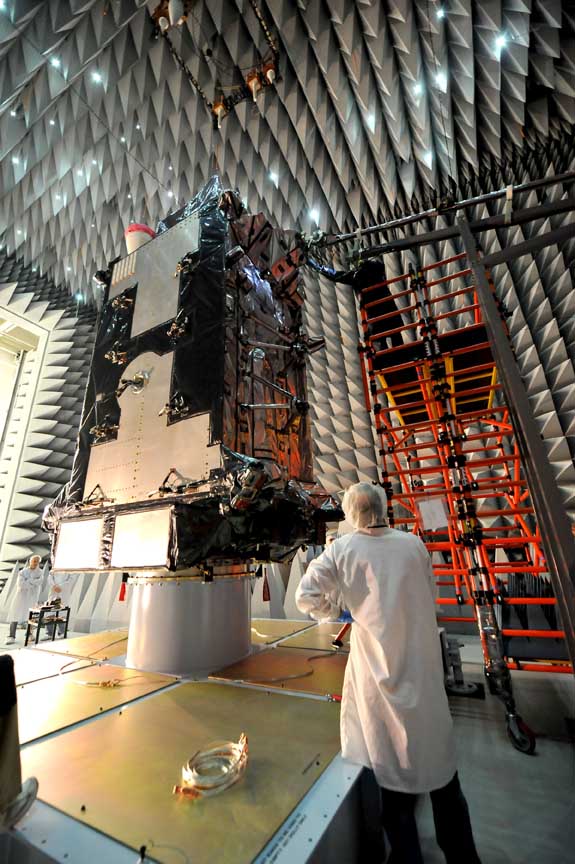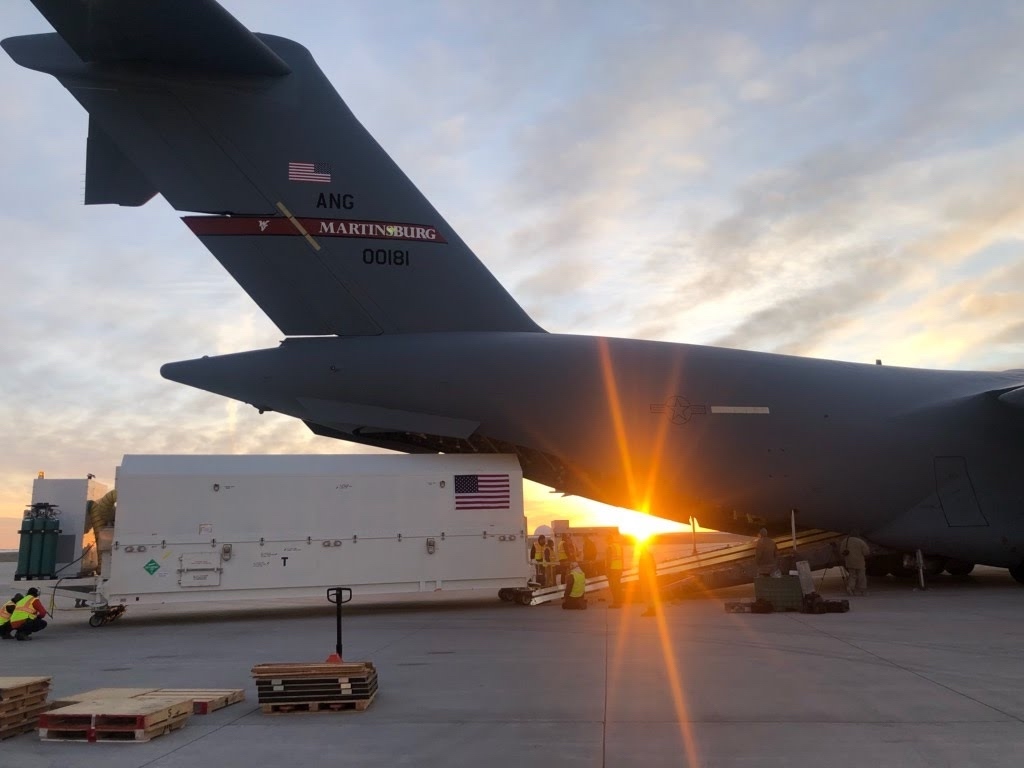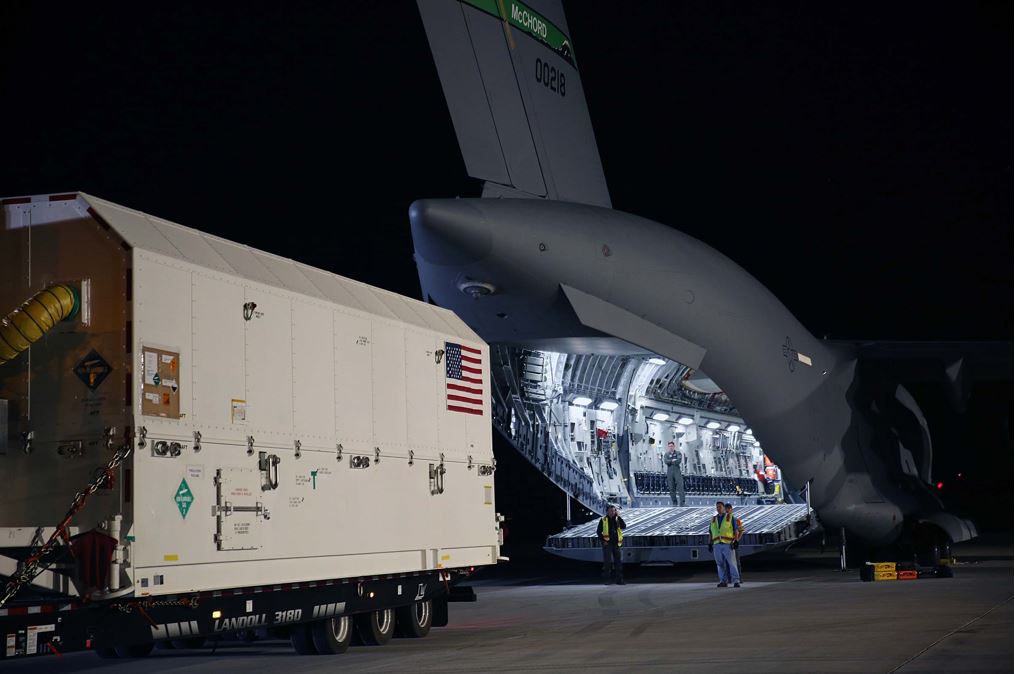 The GPS III Non-Flight Satellite Testbed (GNST) completed pathfinding activities at Lockheed Martin’s GPS III Processing Facility outside of Denver prior to it shipping to Cape Canaveral Air Force Station. Lockheed Martin photo
The GPS III Non-Flight Satellite Testbed (GNST) completed pathfinding activities at Lockheed Martin’s GPS III Processing Facility outside of Denver prior to it shipping to Cape Canaveral Air Force Station. Lockheed Martin photo Lockheed Martin has delivered a full-sized, functional prototype of the next generation GPS satellite to Cape Canaveral Air Force Station.
The GPS III Non-Flight Satellite Testbed (GNST) arrived at the Cape on July 19 where it will be used to test facilities and pre-launch processes in advance of the arrival of the first GPS III flight satellites, which will undergo similar testing. The first flight GPS III satellite is expected to arrive at Cape Canaveral in 2014, ready for launch by the U.S. Air Force in 2015.
Lockheed Martin has delivered a full-sized, functional prototype of the next generation GPS satellite to Cape Canaveral Air Force Station.
The GPS III Non-Flight Satellite Testbed (GNST) arrived at the Cape on July 19 where it will be used to test facilities and pre-launch processes in advance of the arrival of the first GPS III flight satellites, which will undergo similar testing. The first flight GPS III satellite is expected to arrive at Cape Canaveral in 2014, ready for launch by the U.S. Air Force in 2015.
The GNST arrived at the Cape by Air Force C-17 aircraft from Buckley Air Force Base near Lockheed Martin’s GPS III Processing Facility (GPF) in Denver, Colorado. Prior to shipment, the GNST was developed and then completed a series of high-fidelity activities to “pathfind” the integration, test, and environmental checkout that all production GPS III satellites undergo at Lockheed Martin’s new satellite manufacturing facility.
Part of the original GPS III development contract awarded in 2008, the GNST has helped to identify and resolve development issues prior to integration and test of the first GPS III flight space vehicle (SV 01), according to Lockheed Martin.
"We call the GNST a ‘pathfinder’ because it has truly blazed the trail for every one of our GPS III processes from initial development, production, integration and test, and now pre-launch activities," said Keoki Jackson, vice president for Lockheed Martin’s Navigation Systems mission area. "All future GPS III satellites will follow this same path; so, the GNST was a smart initiative to help us discover and resolve any issues in advance, implement production efficiencies, and ultimately save a tremendous amount of time and money in the long run."
Lockheed Martin is currently under contract for production of the first four GPS III satellites (SV 01-04), and has received advanced procurement funding for long-lead components for the fifth, sixth, seventh and eighth GPS III space vehicles (SVs 05-08).






